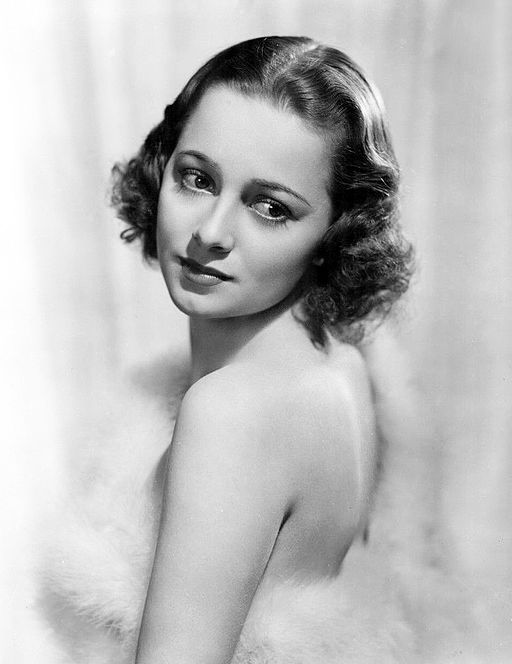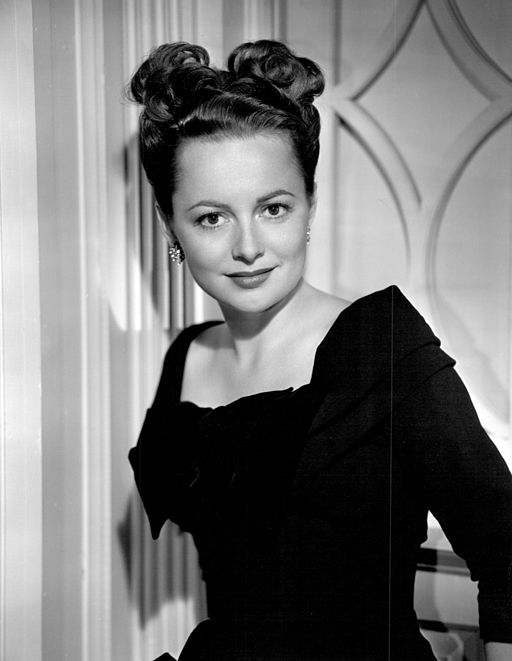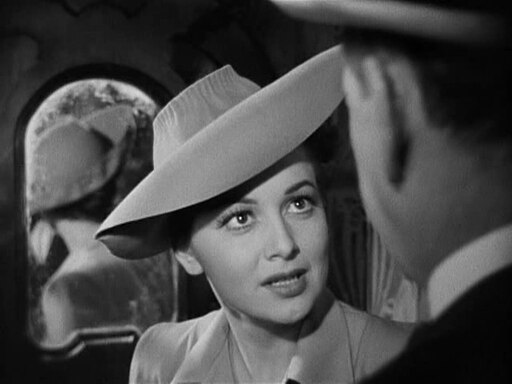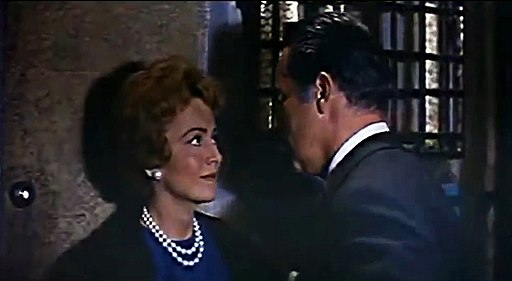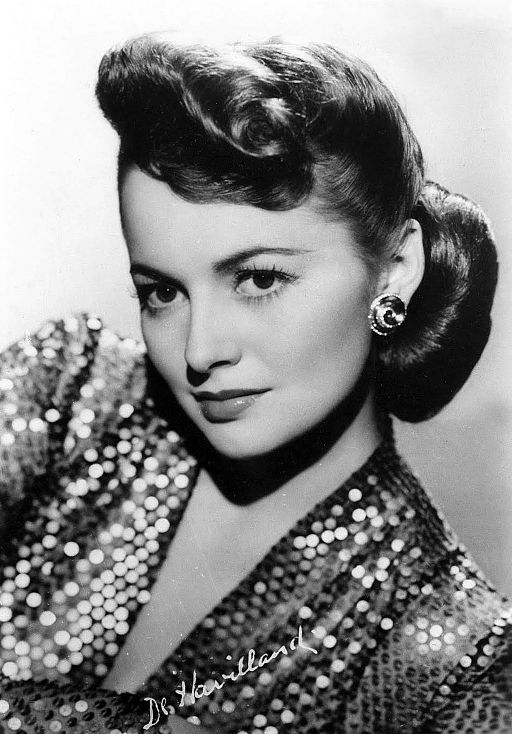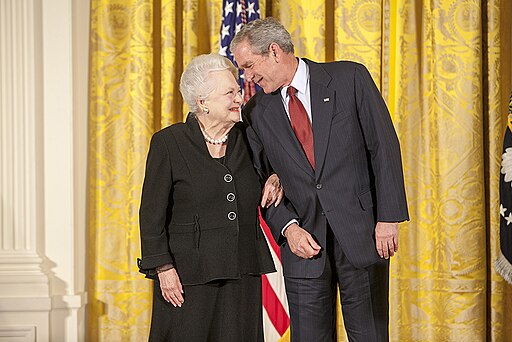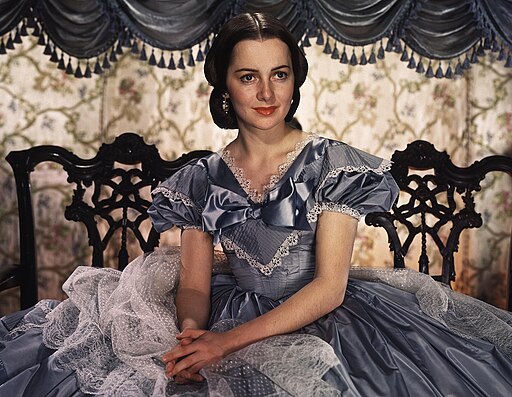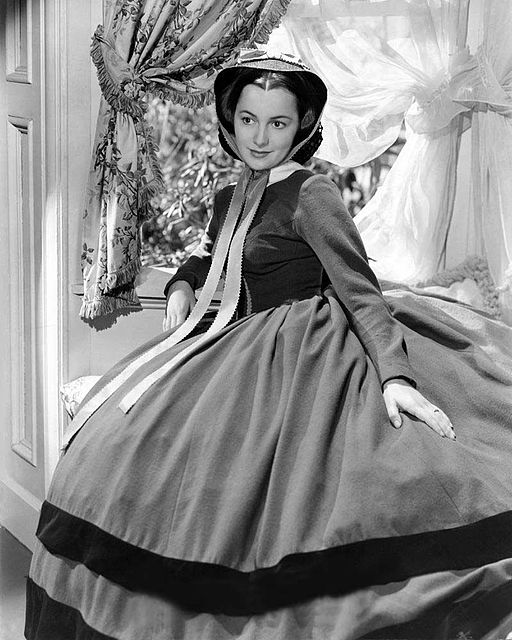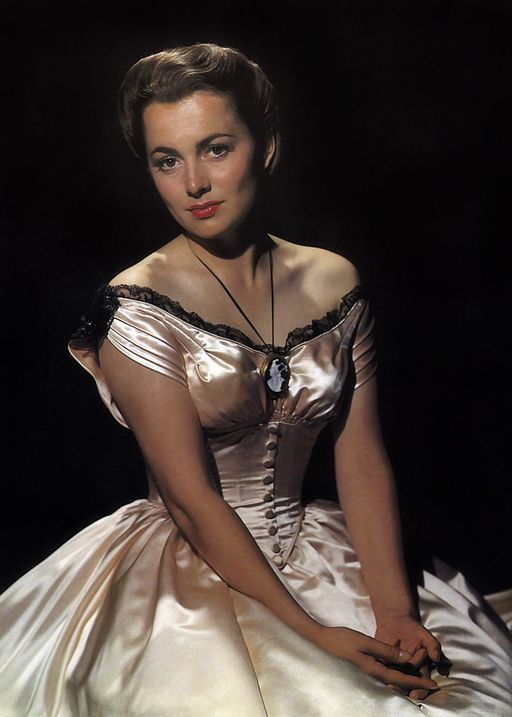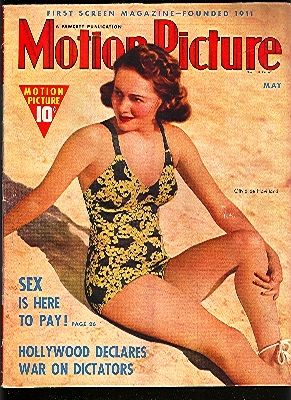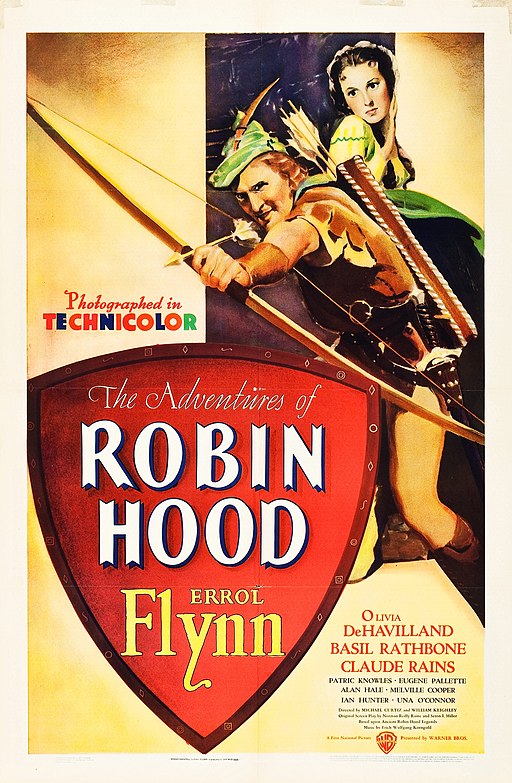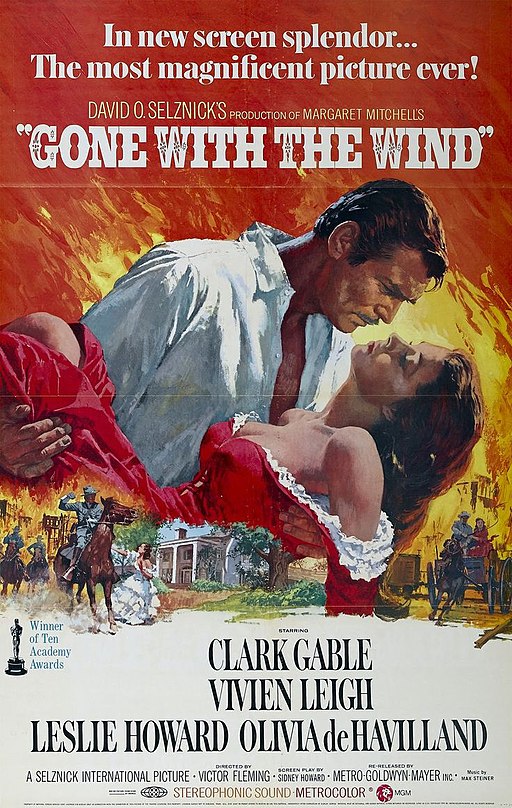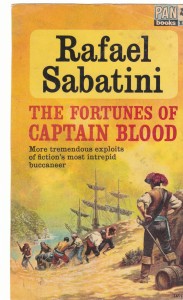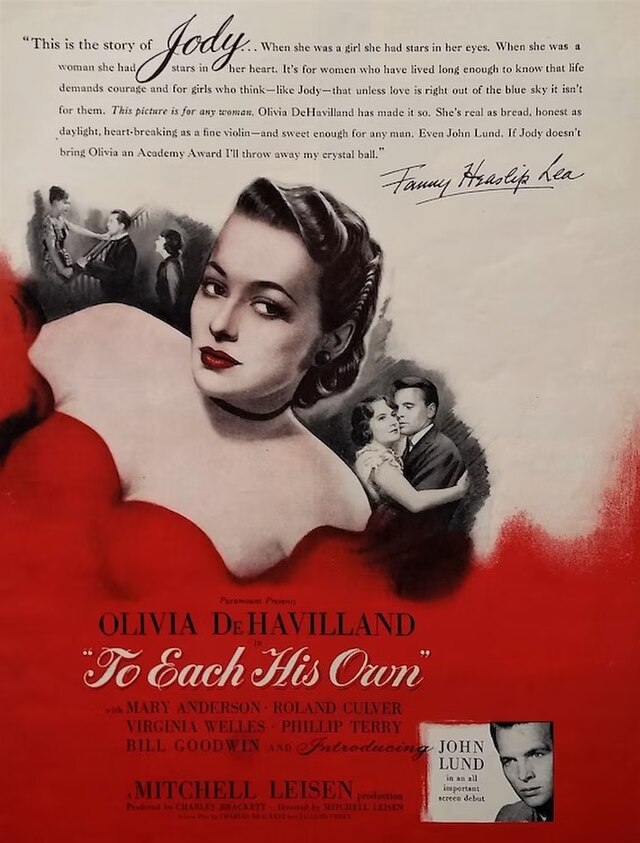Olivia de Havilland
back| Full Name | Olivia Mary de Havilland |
| Stage Name | Olivia de Havilland |
| Born | July 1, 1916 |
| Birthplace | Tokyo, Japan |
| Died | July 26, 2020 |
| Buried | Cimetière de Suresnes, Paris France |
| Married to | Marcus Goodrich (married 1946; divorced 1953) - Pierre Galante (married 1955; divorced 1979) |
| Children | Benjamin Goodrich (born September 27, 1949; died October 1, 1991) - Gisèle Galante (born July 18, 1956) |
| Notable films | Gone With the Wind (1939) - The Adventures of Robin Hood (1938) - To Each His Own (1946) - The Snake Pit (1948) - Hold Back the Dawn (1941) |
Olivia de Havilland
The epitome of grace and resilience of Hollywood's Golden Age
Olivia de Havilland (1916-2020) was a legendary actress, renowned for her roles in Hollywood's Golden Age. Born in Tokyo and raised in California, she rose to fame with breakthrough performances in "Captain Blood" (1935) and "The Adventures of Robin Hood" (1938), forming a celebrated on-screen duo with Errol Flynn.
Her portrayal of Melanie in "Gone with the Wind" (1939) earned her critical acclaim. A two-time Oscar winner, de Havilland triumphed for her roles in "To Each His Own" (1946) and "The Heiress" (1949).
Beyond her acting prowess, she significantly impacted the film industry by challenging the studio system in the landmark De Havilland Law case. Living to 104, she left a legacy as one of the last surviving stars of classic Hollywood cinema, remembered for her elegant performances and contributions to actors' rights.
Related
Olivia de Havilland
Biography and Overview of her Movie Career
- Born: July 1, 1916, in Tokyo, Japan. Olivia Mary de Havilland was the daughter of Walter de Havilland, a British patent attorney with a practice in Japan, and Lilian Augusta Ruse, a former actress.
- Siblings: She had a younger sister, Joan Fontaine, who also became a famous actress.
- Childhood: The family moved to California due to Olivia's health problems. Her parents separated, and Lilian married George Milan Fontaine.
- Education: Olivia attended Los Gatos High School and later studied at Mills College.
Path Towards Success
- Early Acting: Her interest in drama was cultivated in high school plays. She made her stage debut in amateur theater productions in California.
- Hollywood Break: In 1935, she signed a contract with Warner Bros. and made her film debut in "A Midsummer Night's Dream."
- Rising Fame: Her early roles often cast her as the demure, innocent young woman. She gained widespread attention with "Captain Blood" (1935) and "The Adventures of Robin Hood" (1938), both alongside Errol Flynn.
- Critical Acclaim: Her role in "Gone with the Wind" (1939) as Melanie Hamilton brought her an Oscar nomination and established her as a leading actress in Hollywood.
Personal Life and Marriages
- Married to:
- Marcus Goodrich, a Navy veteran and author (1946-1953). They had one child, Benjamin Goodrich.
- Pierre Galante, an executive editor for the French journal Paris Match (1955-1979). They had a daughter, Gisèle.
- Children: Benjamin Goodrich and Gisèle Galante.
Passions and Advocacy
- Interests: De Havilland was known for her love of gardening, reading, and her dedication to her family.
- Advocacy: She was a pioneering figure in challenging the Hollywood studio system, leading to the landmark De Havilland Law, which limited studios' control over their actors.
Later Career and Death
- Continued Acting: She continued to act in movies and television into the 1980s, though less frequently.
- Retirement: She lived in Paris, France, during her later years, having moved there in the 1950s.
- Death: Olivia de Havilland passed away from natural causes on July 26, 2020, at the age of 104, in her home in Paris.
Legacy
Olivia de Havilland's contribution to cinema and her fight for actors' rights have made her an enduring figure in Hollywood history. Her elegance, talent, and determination marked her as one of the most respected actresses of her generation. Her longevity and the quality of her work across different genres and eras remain a testament to her enduring appeal and skill as an actress.
Video "The Truth about Olivia de Havilland":
Movies featuring Olivia de Havilland:
1930s
- 1935, "A Midsummer Night's Dream": A whimsical adaptation of Shakespeare's play where she played Hermia.
- 1935, "Captain Blood": A swashbuckling adventure where she starred as Arabella Bishop opposite Errol Flynn's pirate.
- 1936, "Anthony Adverse": A historical drama in which she played Angela Guiseppe, the love interest.
- 1937, "The Charge of the Light Brigade": A British cavalry film again opposite Errol Flynn.
- 1938, "The Adventures of Robin Hood": Played Maid Marian in this iconic version of the Robin Hood tale.
- 1938, "Four's a Crowd": A romantic comedy where she played Lorri Dillingwell.
- 1939, "Dodge City": A Western film with her as Abbie Irving.
- 1939, "Gone with the Wind": As Melanie Hamilton, her portrayal in this epic Civil War drama earned her an Oscar nomination.
1940s
- 1940, "Santa Fe Trail": A Western historical film where she portrayed Kit Carson Holliday.
- 1941, "Hold Back the Dawn": Played a schoolteacher who falls for a European refugee.
- 1941, "The Strawberry Blonde": A romantic comedy set in the 1890s.
- 1942, "In This Our Life": A drama where she played Roy Timberlake, dealing with family and romantic entanglements.
- 1943, "Thank Your Lucky Stars": A musical comedy where she appeared as herself.
- 1946, "To Each His Own": She won an Oscar for her role as Jody Norris, a woman who has a child out of wedlock.
- 1946, "Devotion": A fictionalized account of the Brontë sisters, in which she played Charlotte Brontë.
- 1948, "The Snake Pit": A drama about mental illness, with her as Virginia Stuart Cunningham.
- 1949, "The Heiress": She won her second Oscar for her role as Catherine Sloper, a wealthy but naive woman.
1950s
- 1952, "My Cousin Rachel": A drama where she played the mysterious Rachel Sangalletti.
- 1955, "That Lady": A historical drama featuring her as Ana de Mendoza.
- 1955, "Not as a Stranger": A medical drama film.
- 1956, "The Ambassador's Daughter": A romantic comedy set in Paris.
- 1958, "The Proud Rebel": A Western film where she played Linnett Moore.
- 1959, "Libel": A court drama featuring her as Lady Margaret Loddon.
1960s and Beyond
- 1962, "Light in the Piazza": A romantic drama set in Italy.
- 1964, "Hush...Hush, Sweet Charlotte": A psychological thriller, playing Miriam Deering.
- 1972, "Pope Joan": She appeared as Mother Superior in this historical drama.
- 1979, "The Fifth Musketeer": A swashbuckling adventure film.
Television Appearances
De Havilland also made several television appearances from the 1950s through the 1980s, including roles in TV movies and series.
Analysis of the Acting Style of Olivia de Havilland:
Olivia de Havilland's acting style was a blend of nuanced emotional depth, grace, and a strong sense of character integrity, which helped her become one of the most respected actresses of Hollywood's Golden Age. Here's a deeper analysis of her style:
Emotional Depth and Authenticity
- De Havilland had an extraordinary ability to convey complex emotions with subtlety. Her performances often involved layers of feeling, which she communicated through minute facial expressions and a highly expressive voice.
- In movies like "The Snake Pit" and "The Heiress," she demonstrated her capacity to portray mentally or emotionally troubled characters with a degree of realism that was rare for her time.
Classic Hollywood Elegance
- She epitomized the classic Hollywood heroine, often portraying characters with an inherent nobility and grace. Her roles in films like "Gone with the Wind" and "The Adventures of Robin Hood" showcased this elegance, combined with a strong, often understated will.
Versatility
- De Havilland was not limited to any single type of role. She successfully navigated from romantic leads in swashbuckling adventures to more serious, dramatic roles that demanded a significant emotional range.
- Her ability to adapt to different genres and characters without losing her distinctive presence demonstrated her versatility as an actress.
Strength and Determination
- Many of her characters displayed a quiet strength and resilience, often in the face of adversity. This trait was not just in her roles but also reflected in her real-life, particularly in her landmark lawsuit against Warner Bros., which changed the landscape of Hollywood contracts.
Interplay with Co-Stars
- Her chemistry with co-stars, most notably Errol Flynn, added a dynamic and often electric element to her performances. Their on-screen pairings were marked by a balance of romance, wit, and mutual respect.
Memorable Quotes from Olivia de Havilland:
On Acting and Career:
- "Every role I've played, that was supposed to be an 'older' woman, has been very meaningful to me."
- "I would prefer to have a more accurate definition of what I do. I act, but I am not an 'actress.'"
On Life and Personal Philosophy:
- "Life is too short to waste on insignificant people and matters."
Reflecting on Age and Experience:
- "It's not the age; it's the mileage."
On Her Famous Lawsuit:
- "I was told I would never work again, if I won or if I lost. When I won, they were still trying to frighten me, but I was no longer easily frightened."
On Resilience:
- "The important thing is to stay active mentally and physically. You mustn't look backward, you must always look forward."
Regarding her Sister, Joan Fontaine:
- "Dragonflies are reminders that we are light and we can reflect light in powerful ways if we choose to do so."
On Happiness:
- "To be happy, you must be honest with yourself and others, and to be honest, you must recognize who you truly are."
Full Interview with Olivia de Havilland:
Trivia:
A] Height of Olivia de Havilland:
Olivia de Havilland's height was approximately 5 feet 3 inches (160 cm).
B] Friendship with Bette Davis:
Olivia de Havilland's relationship with Bette Davis was both professionally collaborative and personally respectful, marked by a mutual admiration for each other's talent. They worked together most notably in the film "Hush...Hush, Sweet Charlotte" (1964), a psychological thriller directed by Robert Aldrich. This film, following the success of "What Ever Happened to Baby Jane?" (1962), which also starred Davis but with Joan Crawford, was an opportunity for de Havilland to step into a high-profile project.
Both actresses were involved in legal battles against their respective studios, seeking greater independence and better control over their careers. This shared experience likely fostered a sense of mutual understanding and respect.
Lawsuit Olivia de Havilland against Warner Bros:
The lawsuit that Olivia de Havilland filed against Warner Bros. in 1943 is a landmark case in Hollywood history, known for significantly changing the film industry, particularly in how studios contracted actors. This case is often referred to as the De Havilland Law.
Background
- In the 1930s and 1940s, Hollywood operated under a studio system that heavily favored studios over actors. Actors were bound by long-term contracts to specific studios, which had considerable control over their careers.
- These contracts typically lasted seven years, but studios would suspend actors without pay for refusing roles, and the suspension time was added to the contract's length, effectively binding actors for longer than seven years.
The Lawsuit
- Olivia de Havilland's contract with Warner Bros. had reached the seven-year mark, but the studio claimed she owed them additional time for periods when she was suspended for turning down roles.
- In 1943, de Havilland took legal action against Warner Bros., challenging this practice. The case went to the California Superior Court and then to the California Court of Appeal.
Outcome and Impact
- The court ruled in de Havilland's favor, interpreting California Labor Code Section 2855 (known as the "Seven-Year Rule") to mean that an employer could not enforce a personal services contract beyond seven calendar years from the start date.
- This ruling effectively ended the long-standing practice of extending contracts through suspensions and significantly diminished the power studios had over their actors.
- The decision was a major victory for actors, leading to greater freedom and negotiating power. It allowed actors to take on more diverse roles across different studios and to have more control over their careers.
Legacy
- The De Havilland Law, as it came to be known, had a profound impact on the structure of Hollywood, contributing to the eventual decline of the old studio system.
- This case established Olivia de Havilland not only as a talented actress but also as a key figure in advocating for actors' rights and improving working conditions in the film industry.
De Havilland's lawsuit is celebrated for its role in empowering actors and revolutionizing the dynamics of Hollywood, making her an influential figure both on and off the screen.
Awards and Recognitions:
Academy Awards
- 1940: Nominated for Best Actress in a Supporting Role for "Gone with the Wind."
- 1942: Nominated for Best Actress for "Hold Back the Dawn."
- 1947: Won Best Actress for "To Each His Own."
- 1949: Nominated for Best Actress for "The Snake Pit."
- 1950: Won Best Actress for "The Heiress."
Golden Globe Awards
- 1950: Won Best Actress in a Motion Picture – Drama for "The Heiress."
Emmy Awards
- 1987: Nominated for Outstanding Supporting Actress in a Miniseries or a Special for "Anastasia: The Mystery of Anna."
Other Honors and Recognitions
- 1958: Received a star on the Hollywood Walk of Fame for her contributions to the film industry.
- 1960: Honored with the George Eastman Award, given by George Eastman House for distinguished contribution to the art of film.
- 1978: Awarded the National Board of Review, USA, for Career Achievement.
- 2008: Awarded the National Medal of Arts by President George W. Bush, recognizing her significant contributions to the arts and to American culture.
- 2010: The Academy of Motion Picture Arts and Sciences paid tribute to de Havilland with a special event celebrating her life and career.
Festivals and Special Awards
- 1962: Received the Special Volpi Cup at the Venice Film Festival for "Light in the Piazza."
- 1998: Awarded the Legion of Honour (Chevalier), France's highest award, for her contributions to the arts.
- 2017: Appointed as a Dame Commander of the Order of the British Empire (DBE) for services to drama by Queen Elizabeth II.
Miscellaneous Honors
- De Havilland received numerous lifetime achievement awards and honors from various film organizations and festivals worldwide, recognizing her as one of the last surviving stars from the Golden Age of Hollywood Cinema.
Significance of her Role in “Captain Blood”:
Olivia de Havilland's role in "Captain Blood" (1935) was significant for several reasons, marking a pivotal point in her career:
Breakthrough Role
Early Career Boost: "Captain Blood" was one of Olivia de Havilland's first major film roles and served as a significant breakthrough in her early acting career. It was her second film appearance after "A Midsummer Night's Dream" and her first major leading role.
Establishing On-Screen Chemistry with Errol Flynn
Errol Flynn Partnership: This film was the first of eight movies in which de Havilland co-starred with Errol Flynn. Their on-screen chemistry was palpable and became a defining aspect of her early career. This pairing with Flynn in romantic and adventurous roles made both actors immensely popular and helped to establish their careers in Hollywood.
Typecasting and Versatility
Romantic Lead Roles: In "Captain Blood," de Havilland played Arabella Bishop, the romantic interest of the titular character, Peter Blood (played by Flynn). This role typecast her as the gentle, beautiful damsel, often in distress, a pattern that would follow her in several subsequent films. However, her performances always brought depth and strength to these characters, showcasing her versatility beyond the stereotypical roles of the era.
Industry Recognition and Audience Appeal
Audience and Critical Acclaim: The film was a huge success and received positive reviews. It was significant in establishing de Havilland as a bankable star and a favorite among audiences, which was crucial for a young actress in the highly competitive environment of 1930s Hollywood.
Contribution to Swashbuckling Genre
Swashbuckling Films: "Captain Blood" is often credited with revitalizing the swashbuckling genre in Hollywood. De Havilland's role in such a popular film helped to elevate the status of these adventure films and paved the way for more to come.
Long-Term Impact on Her Career
Foundation for Future Success: The success of "Captain Blood" set the stage for her continued success in Hollywood. It led to more roles where she could showcase her talent, eventually leading to more challenging roles and her later Oscar-winning performances.
Full list of Movies featuring Olivia de Havilland:
1930s
1935 - Alibi Ike
1935 - The Irish in Us
1935 - A Midsummer Night's Dream
1935 - Captain Blood
1936 - Anthony Adverse
1936 - The Charge of the Light Brigade
1937 - Call It a Day
1937 - It's Love I'm After
1937 - The Great Garrick
1938 - Gold Is Where You Find It
1938 - The Adventures of Robin Hood
1938 - Four's a Crowd
1938 - Hard to Get
1939 - Wings of the Navy
1939 - Dodge City
1939 - The Private Lives of Elizabeth and Essex
1939 - Gone with the Wind
1939 – Raffles
1940s
1940 - My Love Came Back
1940 - Santa Fe Trail
1941 - The Strawberry Blonde
1941 - Hold Back the Dawn
1941 - They Died with Their Boots On
1942 - The Male Animal
1942 - In This Our Life
1943 - Thank Your Lucky Stars
1946 - To Each His Own
1946 - Devotion
1946 - The Well-Groomed Bride
1948 - The Snake Pit
1949 - The Heiress
1950s
1952 - My Cousin Rachel
1955 - That Lady
1955 - Not as a Stranger
1956 - The Ambassador's Daughter
1958 - The Proud Rebel
1959 – Libel
1960s and Beyond
1962 - Light in the Piazza
1964 - Lady in a Cage
1964 - Hush...Hush, Sweet Charlotte
1970 - The Adventurers
1972 - Pope Joan
1977 - Airport '77
1978 - The Swarm
1979 - The Fifth Musketeer

